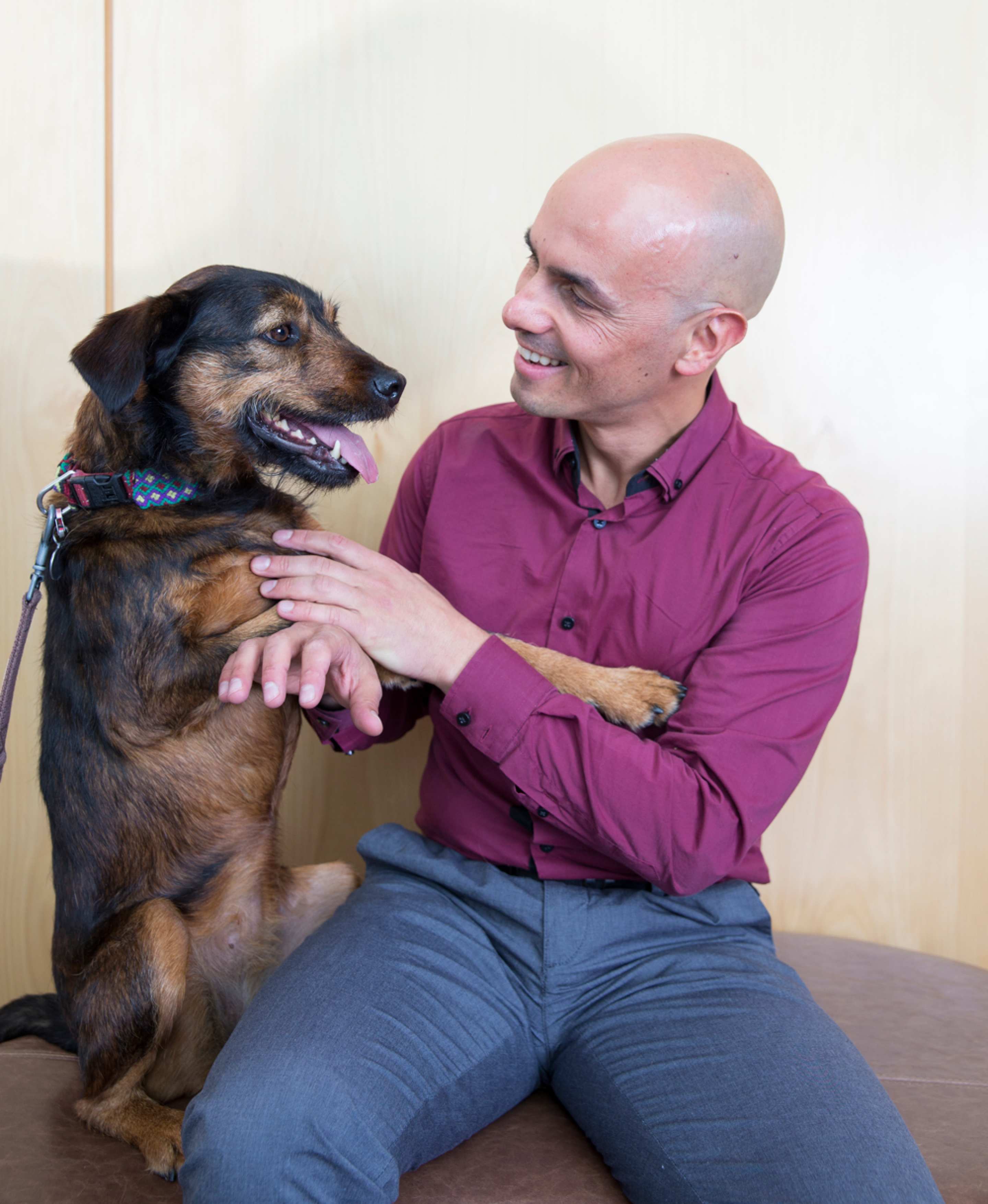Health benefits of dog ownership explored in new research node
Man's best friend is set to become his lab partner, with the launch of a research node on the health effects of dog ownership at the University of Sydney's Charles Perkins Centre.

Associate Professor Manos Stamatakis hopes the new node will reveal the effects of dog ownership and the mechanisms behind them. [Image: Sydney Alumni Magazine, Victoria Baldwin]
In collaboration with the RSPCA NSW, the dog ownership node brings together experts in public health, physical activity and exercise, disease prevention, behaviour change, health psychology, human-animal interactions, and canine health.
Researchers hope the node will shed light on not only how dog ownership influences human health, but also on how these benefits could be harnessed as part of the health care system.
“Fragmented research has indicated the benefits of dog ownership on health, and in particular on physical activity through dog walking, but it has so far failed to provide a body of evidence on the extent of these benefits, and how and why they occur,” said node leader Associate Professor Manos Stamatakis, from the Charles Perkins Centre and Faculty of Health Sciences.
“We know that dogs can be not only a catalyst for physical activity, which is a major health issue in our society, but dog ownership can also address social isolation; the lack of connection between humans.
“What we want to understand is why these benefits occur. Is it because of the ownership itself, or because there is another mechanism that mediates this, like walking or companionship?”
The node is one of the world’s first coordinated, comprehensive research efforts in the field, and is the first to make interventions in human health its top priority.
With one of the world’s highest rates of dog ownership, Australia is uniquely positioned to take advantage of the health benefits of owning a dog.
Thirty-nine per cent of Australian households own a dog, and of these around two-thirds are estimated to be under-walked. Interventions designed to increase dog walking could therefore have a marked impact on human health.
Along with physical activity, researchers will also explore the psychological and psychosocial benefits of dog ownership, which are becoming increasingly important as the population ages.
“We know that with older age comes increasing isolation, and with that comes loneliness. It’s a major cardiovascular disease risk factor, it’s a major cancer risk factor, and it’s a major risk factor for depression,” Associate Professor Stamatakis said.
“One aspect of human isolation can be addressed simply by owning a dog, because of their companionship, unconditional acceptance and love that humans often do not get from other people.
“The second aspect is that the dog can be a catalyst to tighten human social connections and increase networks.”
According to Brendon Neilly, RSPCA NSW’s Executive Manager of Animal Care Services, the data produced by the Charles Perkins Centre’s dog ownership node could be used to make significant advances in human and animal health, with a potential path cleared for dogs to be used as part of the health care system.
“We could say to people like health care providers, public transport providers, rental accommodation owners, local governments, nursing homes and community groups that it’s not just anecdotal and it’s not just about letting people keep pets,” Mr Neilly said.
“If we can demonstrate a physiological measure, a genuine value, we can make real improvements to quality of life. And that’s for both owners and pets.”
Related articles
Study explains elastin's remarkable movements
New research likens the flexibility of elastin in a blood vessel to the dynamics of a ballet.
Human 'shock absorbers' discovered
Sydney excels in national research engagement and impact assessment
Sydney researchers secure $38 million in NHMRC funding
Cannabis treatment counters addiction: first study of its kind
$2.3 million to support industry partnerships for 21 projects
Twenty-one projects have been awarded funding under the University's industry and community engagement seed fund.
Incredible gift means a cure is in sight
Most of us walk through life never having to think about the fact that we can see clearly. But for many Australians, loss of vision is a real problem - and it can be especially scary when it comes out of the blue.
4 reasons why food is more important than you think
Access to food is a basic human right, vital for good health and ultimately for life itself. But how often do you wonder where your next meal is coming from, who's growing it, and whether it's actually good for you?